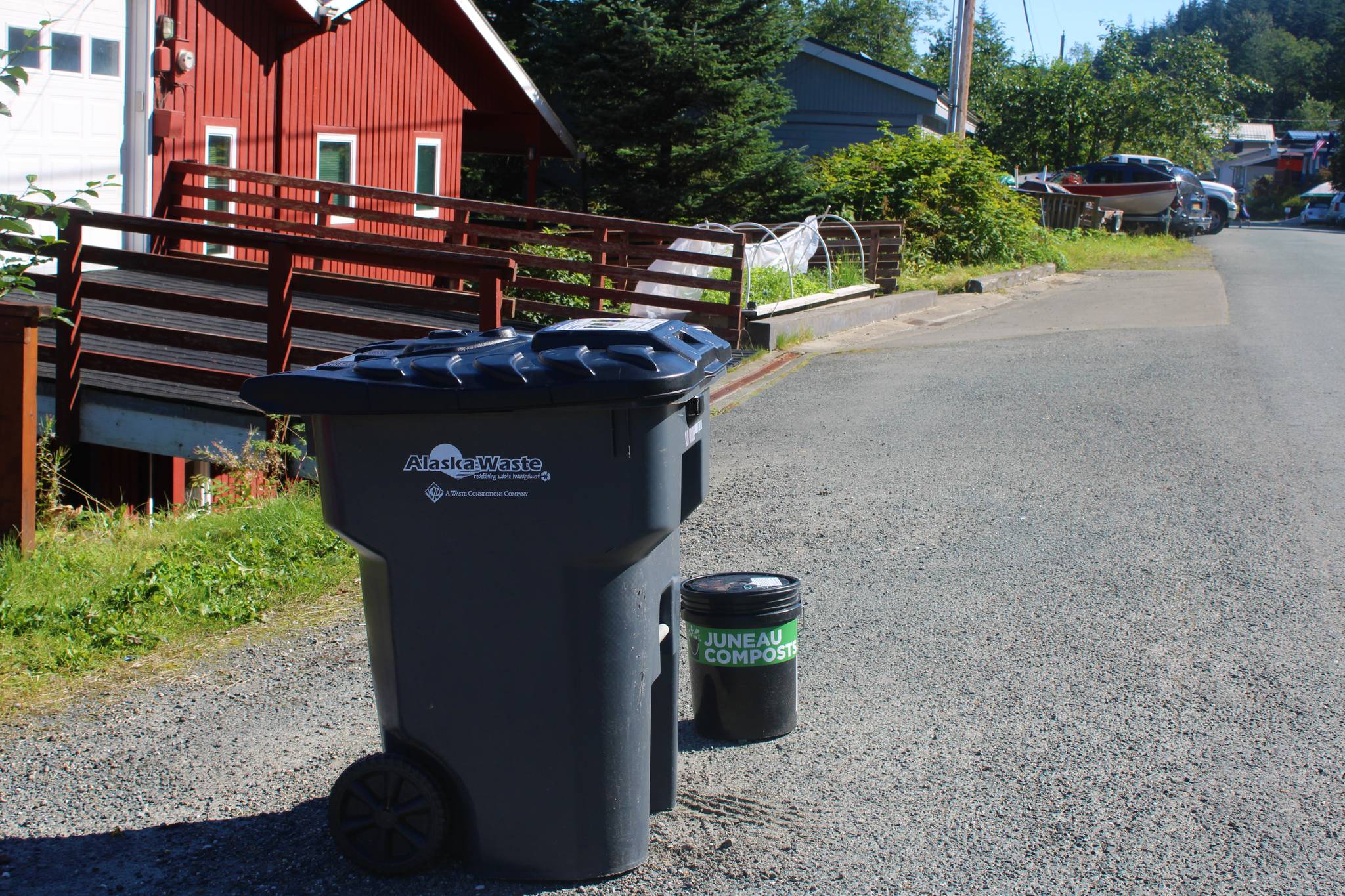This story has been updated.
The City and Borough of Juneau’s Public Works and Facilities Committee members talked trash Monday afternoon.
Committee members heard from state regulators and a representative from Waste Management, the private company that owns and operates the Capitol Disposal Landfill in the Lemon Creek area.
The meeting was a part of the committee’s ongoing work to address concerns about the long-term viability of Juneau’s landfill and odors in the area.
Jim Denson, environmental protection manager for the Pacific Northwest and British Columbia, said that Juneau’s landfill receives about 100 tons of trash each day.
He said that at that rate, the landfill’s lifespan is greater than 20 years, based on “current air space volume.”
“We can’t give you a specific timeline,” Denson said, adding that waste degrades and reduces in volume, which frees up space.
That timeline sounded right to Zach Gianotti, an environmental specialist with Alaska’s Department of Environmental Conservation.
He told the committee that he estimates the landfill will last 17 to 26 more years, with a possible closing date between 2037 and 2046.
Denson said that if the city reduces the volume of solid waste going to the landfill, the site could last longer. He said that as a community, Juneau does a great job with recycling and that the city could expect Waste Management to serve as a partner in efforts to reduce the waste stream.
Moving to zero waste
In the coming months, the CBJ Assembly’s Committee of the Whole will be asked to consider a zero waste plan as a long-term goal for the city.
“Zero waste is the term used to describe an approach to waste management that minimizes waste generation and maximizes resource recovery. While zero waste is the goal, it is generally acknowledged that waste will not be completely eliminated but rather could be reduced by (more than ) 90%,” reads a memo on the topic that will be shared with the CBJ Assembly.
“You can rely on us to help,” Denson said, acknowledging that reduced waste could affect the company’s business model. However, he said that the company always wants to “do what’s right.”
Denson said that Waste Management is dedicated to getting the “highest and best use” from the materials they collect. But, he warned that it’s expensive to divert materials for other uses.
Sun (finally) shines on mural project
Composting concerns
In addition to looking at a zero waste plan, the assembly will consider an ordinance to appropriate $50,000 for CBJ to partner with the private sector on a composting pilot program to create an additional supply of compost and grow local composting capacity.
Denson said that Waste Management knows how to run composting facilities and can make compost. However, he said that for the idea to make sense on a large scale, the compost must be used. He said one challenge Juneau may face is finding a destination for food scraps that had been converted to compost.
“I don’t see miles and miles of farm fields,” he said.
Incinerator possibilities
Assembly member Carole Triem asked Denson about the idea of incinerating Juneau’s trash.
Denson also said that trash incinerators are generally cost-prohibitive, especially for a relatively small volume of trash, like Juneau generates.
He added that incinerators are expensive because of pollution-control devices required to make the system work.
Denson noted that incinerators can be used to generate electricity or steam, which can both be valuable.
Odor concerns
Denson said that operating a landfill in a wet environment like Juneau’s offers particular challenges, including odor control.
“All the rain means odor starts right away,” Denson said. “It creates a lot of gas fast.”
He said that the company is committed to addressing odor concerns.
“Odors are not acceptable at Waste Management,” he said.
Denson explained that equipment failures, including an on-site air compressor, pumps and a flare thermocouple, had malfunctioned last winter, leading to odor issues.
Denson said those issues had been addressed, and additional improvements, such as new collectors that will be installed once COVID-19-related travel restrictions ease, are on the horizon.
To further control odors, Denson said the company would minimize the size of the working face and improve daily covering efforts.
Denton said the company is also planning other improvements, such as building a litter fence and beefing up efforts to keep birds, including eagles, away from the area.
“The main thing for bird control is to take food away with a good cover and minimize the working face size,” he said, noting that working areas will be covered at night.
Denson said the company is working on a public drop-off space where citizens can drive up and throw trash in a bin as another way to limit the exposed area.
Election issue
Concerns about the landfill have swirled around the assembly for the last few election cycles.
As the Public Works and Facilities Committee chair, Michelle Bonnet Hale has chaired several recent public meetings that outline options for the city’s waste, including Monday’s meeting.
Kelly Fishler, who hopes to unseat Hale in District 2, listed dealing with the landfill as a crucial campaign issue.
“The reality is that no one wants to talk about the dump. But, we need to take care of it,” Fishler said in a recent interview with the Empire.
Fishler suggested that solutions may lie in new technologies that should be explored sooner rather than later.
• Contact reporter Dana Zigmund at dana.zigmund@juneauempire.com or 907-308-4891.

